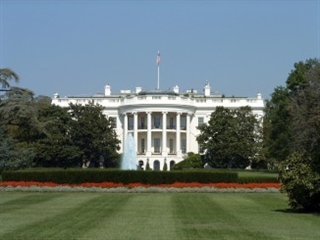
The beginning of the Trump labor & employment era
The beginning of the Trump labor & employment era
Practices
 During his campaign to reach the White House, President Donald Trump promised to roll back many Obama-era policies. During the course of the last two weeks, President Trump appears to have started to lay the groundwork for doing so.
During his campaign to reach the White House, President Donald Trump promised to roll back many Obama-era policies. During the course of the last two weeks, President Trump appears to have started to lay the groundwork for doing so.
On Jan. 23, 2017, President Trump named Philip Miscimarra as the acting chairman of the National Labor Relations Board (NLRB). Miscimarra, who was appointed by President Barack Obama in 2013, was the only Republican appointee left on the NLRB. Miscimarra was also the lone dissenter in the NLRB’s decision in Browning-Ferris Industries of California, Inc., the controversial decision that changed how the NLRB determines joint-employer relationships. More importantly, President Trump will have the opportunity to nominate two more individuals to fill the NLRB’s vacant seats.
A few days later, on Jan. 25, 2017, President Trump appointed Victoria Lipnic, a current member of the Equal Employment Opportunity Commission (EEOC), to serve as the acting chair of the EEOC. Lipnic was one of two commissioners to vote against the EEOC’s decision interpreting Title VII of the Civil Rights Act of 1964 to prohibit sexual orientation discrimination. Lipnic has also opposed the EEOC’s new EEO-1 forms, which require covered employers to provide certain compensation information.
On Feb. 1, 2017, the Milwaukee Journal Sentinel reported that Wisconsin Governor Scott Walker and Vice President Mike Pence discussed the potential for rolling out right to work legislation at the national level for federal employees. On the same day, two Republican members of the House of Representatives introduced H.R. 785, a bill that would amend the National Labor Relations Act and the Railway Labor Act. The proposed law would be called the “National Right-to-Work Act” and would prohibit compulsory payments to unions.
Although it will take some time for employers to fully see the effects, there is no question that employers will face less (or more friendly) oversight under the Trump administration. In the meantime, however, employers should continue to operate under the latest guidance issued by federal agencies to avoid becoming “test” cases.
To learn more about these and other developments impacting your workplace, please join us for our 28th Annual Labor & Employment Law Seminar in Madison (Feb. 14), Green Bay (Feb. 22) or Milwaukee (March 2), Wisconsin.
